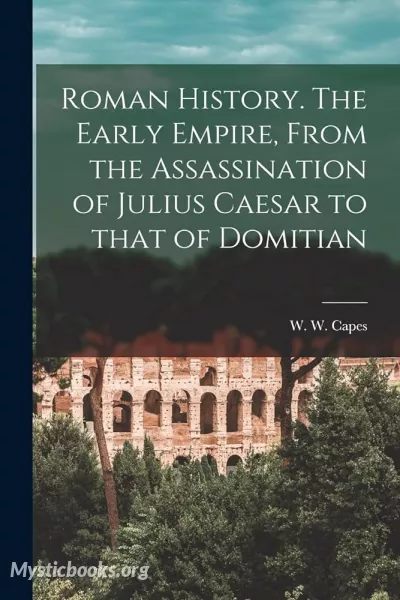
Roman History: The Early Empire, from the Assassination of Julius Caesar to that of Domitian
'Roman History: The Early Empire, from the Assassination of Julius Caesar to that of Domitian' Summary
Roman History: The Early Empire, from the Assassination of Julius Caesar to that of Domitian by William Wolfe Capes is a comprehensive history of the Roman Empire from the assassination of Julius Caesar in 44 BC to the assassination of Domitian in 96 AD. Capes provides a detailed account of the political, social, and cultural developments of this turbulent period, and he offers his own insights into the causes and consequences of the rise and fall of the Roman Republic.
The book begins with a description of the chaotic aftermath of Caesar's assassination. Capes explains how Caesar's supporters and detractors fought for control of the Roman Republic, and how this led to a series of civil wars. He also discusses the rise of Augustus, Caesar's adopted son, who eventually emerged as the victor of these civil wars and established himself as the first Roman emperor.
Capes then goes on to chronicle the reigns of the first five Roman emperors: Augustus, Tiberius, Caligula, Claudius, and Nero. He provides a detailed account of each emperor's life and career, as well as the major events of their reigns. Capes also explores the social and cultural changes that were taking place in Rome during this time, such as the rise of Christianity and the decline of the traditional Roman aristocracy.
One of the most striking things about Capes's book is his ability to bring the characters and events of Roman history to life. He does this through his vivid descriptions of battles, political intrigue, and everyday life in Rome. Capes also has a knack for explaining complex historical concepts in a clear and concise way.
Another notable feature of Capes's book is his honesty and objectivity. He does not shy away from the dark side of Roman history, and he is critical of many of the emperors he writes about. However, Capes is also fair-minded, and he gives credit to the emperors for their achievements.
Roman History: The Early Empire, from the Assassination of Julius Caesar to that of Domitian is a must-read for anyone who is interested in the history of the Roman Empire. It is a comprehensive, well-written, and insightful account of a fascinating and important period in Roman history.
In addition to its historical value, Capes's book is also a valuable literary work. His writing is clear, engaging, and often poetic. He has a knack for painting vivid word pictures and for capturing the essence of a person or a place in a few well-chosen words.
For example, Capes describes the city of Rome in the following way:
"Rome was a city of contrasts. It was a city of wealth and poverty, of beauty and ugliness, of vice and virtue. It was a city where the old and the new coexisted side-by-side. The ancient temples and basilicas stood alongside the new palaces and amphitheatres."
Capes also has a gift for sketching memorable portraits of the people he writes about. For example, he describes the emperor Augustus in the following way:
"Augustus was a complex and contradictory figure. He was a brilliant politician and a gifted administrator. He was also a ruthless dictator who was responsible for the deaths of thousands of people. But he was also a man who loved art and literature, and he was a patron of many of the greatest poets and writers of his time."
Overall, Roman History: The Early Empire, from the Assassination of Julius Caesar to that of Domitian is a masterfully written and informative book. It is a must-read for anyone who is interested in the history of the Roman Empire.
Book Details
Authors
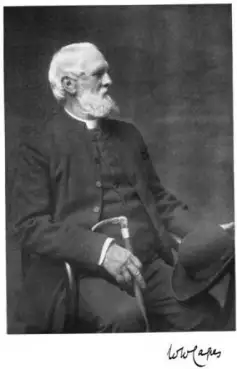
William Wolfe Capes
United Kingdom
William Wolfe Capes was a notable Hereford scholar. Capes attended St Paul's School, London, and the Queen's College, Oxford. Ordained in 1868, he was a cleric in the Diocese of Winchester, rector of...
Books by William Wolfe CapesDownload eBooks
Listen/Download Audiobook
- Select Speed
Related books
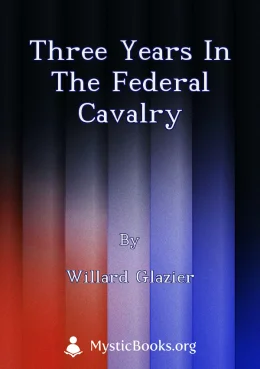
Three Years in the Federal Cavalry by Willard Glazier
In 'Three Years in the Federal Cavalry,' Captain Willard Glazier chronicles his experiences as a Union cavalryman during the American Civil War. He r...

Running the Blockade by Thomas E. Taylor
Running the Blockade offers a firsthand account of the daring exploits of blockade runners during the American Civil War. Through the eyes of Thomas E...

Henry Wirz, Commander of Andersonville Confederate Prison: Trial and Execution by United States Army Staff Judge Advocate
This book provides an account of the trial and execution of Henry Wirz, the commander of the infamous Confederate prisoner-of-war prison at Andersonvi...

American Myths and Legends, Volume 1 by Charles M. Skinner
American Myths and Legends, Volume 1 is a collection of folklore from author Charles M. Skinner. It is intended as a follow-up work to his multivolume...

Shades of the Wilderness by Joseph A. Altsheler
Shades of the Wilderness, set against the backdrop of the American Civil War, follows the continuing adventures of Harry Kenton and his comrades in th...

Comentarios Reales de Los Incas by Inca Garcilaso de la Vega
The Comentarios Reales de los Incas is an invaluable historical account of the Incan Empire, written by Inca Garcilaso de la Vega, a descendant of bot...

Ten Days that Shook the World by John Reed
Ten Days that Shook the World is a classic account of the October Revolution in Russia in 1917. Written by American journalist John Reed, the book fol...

The Great Events by Famous Historians, Volume 02 by Charles F. Horne
Embark on a riveting journey through the annals of time with "The Great Events by Famous Historians, Volume 02" curated by Charles F. Horne. This extr...
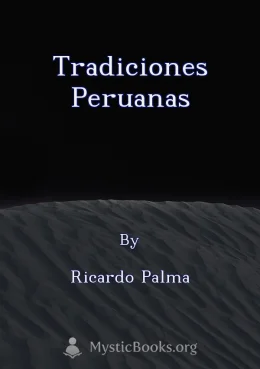
Tradiciones peruanas by Ricardo Palma
Tradiciones Peruanas is a collection of short stories by Ricardo Palma that narrate various moments and characters from Peruvian history. While not in...
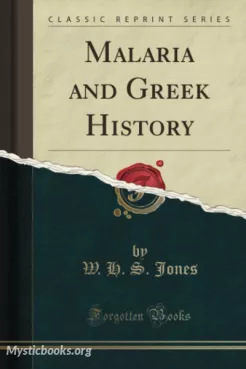
Malaria in Greek History by William Henry Samuel Jones
It explores the impact of malaria on the ancient Greek world. Written in 1909, the book is a comprehensive study of the disease and its effects on Gre...
Reviews for Roman History: The Early Empire, from the Assassination of Julius Caesar to that of Domitian
No reviews posted or approved, yet...